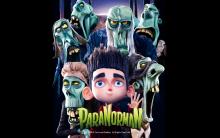revenge

So far, this escalating feud is a rather depressing back-and-forth, a cycle of violence for which there doesn’t seem to be any way out. But instead of letting us bask in Ellie’s righteous violence a la John Wick, the series questions the line between justice and revenge, asks whether mercy has any part in the equation, and doesn’t offer any easy answers to these reflections.

The falsehoods are so thick, the hypocrisies so outrageous, the corruption so rife, the processes so broken that you don’t know if you trust anyone anymore. The vulnerable are mocked or torn from their parents’ arms. Men in expensive suits say “Lord, Lord,” like they own air and mineral rights to the Most High. But their God, the one you thought—if but reluctantly—that you shared, is no god you recognize.
How can the pieces ever be put back together, the damage undone? What is gospel truth now?
A knot of self-righteous rage, tangled inextricably with despair, owns your gut. The accusing thought comes that you’re complicit. You’ve not done enough; you’ve saved no one. Guilt is the final straw. A voice not quite your own yet completely your own snarls: “Burn. It. Down.”

Marjorie Liu and Sana Takeda’s new fantasy comic series Monstress approaches the topics of oppression and survival through one such richly imagined fantasy world. Inspired in part by Liu’s grandparents, survivors of the Japanese invasion of China during World War II, Monstress is a story about the difficulty of overcoming the pain of systemic oppression without losing yourself in rage, pain, and revenge
If you were on Facebook or Twitter last week, you probably saw the CBS interview with Mandy Patinkin. He’s probably best known for this line from the classic movie The Princess Bride:
“Hello. My name is Inigo Montoya. You killed my father. Prepare to die.”
The Princess Bride was released when I was 16. My friends and I would throw that line back and forth whenever we competed against one another. Monopoly. Basketball. Chess. Nintendo. Rock, paper, scissors. It didn’t matter. Like anyone with a pulse during the late 1980s, we repeated that phrase endlessly. It was our favorite line in the movie.
That and “Mawwiage …”
But that’s not Mandy’s favorite line.

Paranorman, the stop-motion animated feature by Laika Studios just came out on Netflix instant download, so we decided to watch it for our family movie night. It's a fun film, perhaps a bit too scary for the little ones, but what really stood out for me was the surprisingly deep morality in this little film. This comes in an unlikely package since the film is about zombies and witches. Not surprisingly, if you look for Christian reviews of the film you will see many focus on warnings to stay way from the occult. Sadly, this response misses the profoundly deep moral message behind this film — one that confronts religious violence, and instead promotes a message of redemption and forgiveness. That's quite a bit of insight for a cartoon!
The premise of Paranorman is that the town of Blithe Hollow (not coincidentally set in Massachusetts, as we will see later) is about to be overrun by zombies because of the curse of an evil witch. Only Norman Babcock, an odd boy who can speak to the dead, can save the day. The movie begins by having us get to know Norman, who is emotionally isolated because his family does not understand him, and his peers ostracize and ridicule him as a "freak" at school. The only person who believes Norman is his friend Neil Downe, and overweight boy who is himself bullied.
The town is in peril because three centuries ago, an evil witch was executed, and in revenge put a curse on puritan judge and her accusers, cursing them to rise from the grave as zombies. So each year the curse of the witch must be appeased by reading from a mysterious book at the grave of the witch in order to prevent a zombie apocalypse. But this year that does not happen, and the zombies overrun the town. The townspeople and local police form the typical Frankenstein mob, complete with pitchforks and shotguns to kill the zombies. As the mob mentality grows, Norman and his motley band are threatened by the mob as well.
This is the first point where we see the film’s unmasking of "virtuous" violence: in the logic of many films, so long as someone is a "monster" or an "alien," it is okay to kill them. So we have no problem with watching mass killings of monsters or aliens in movies because ... well ... they're monsters. So you're supposed to kill them. That's what good guys do in movies. This is the unquestioned plot of hundreds of movies. As long as the Storm Troopers in Star Wars are faceless, we don't bat an eye when Luke kills one after the other. They have been dehumanized, and so it's okay to kill them all. The same is true for the Orks in Lord of the Rings, or the witch and her minions in the Chronicles of Narnia.

Forgiveness is a form of suffering. Yes, you read that right.
Most of us talk about forgiveness and always speaks of how wonderful it is. But there is a reason so many can’t seem to forgive — it requires a willingness to suffer.
When people commit an offense against us, our natural inclination is to commit an offense against them. Not just any offense, but an offense that is bigger, badder, and one that hurts far more.
We call this revenge.
We tell ourselves that justice has been served, and believe this because deep inside of us, it feels really good to get even. Except, we didn’t get even — we got ahead. So vengeance will come back around to us. We will receive pay back, and then we will pay it back again. On it goes with vengeance — it never ends.